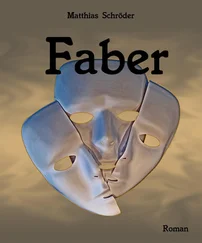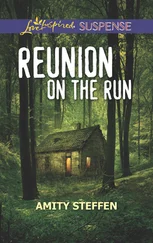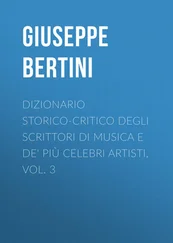No one ever checked my story. When the time came, I took a bus two hours north from Boston to a bus stop called Moultonville, where a camp representative was to greet me and another scholarship boy we picked up in Nashua. When we got off the bus, a stout woman in canvas pants came toward us. This was Ida, the camp cook and its only female. The other boy mumbled an introduction. Ida looked at me. “Then you must be Eric Kennedy.”
Why did they believe me? God knows. All I can say is it was 1984. You could apply for a social security number through the mail . There were no databases. You had to be rich to get a credit card. You kept your will in a safety deposit box and your money in a big wad. There were no technologies for omniscience. Nobody wanted them. You were whoever you said you were. And I was Eric Kennedy.
For the next three summers, that’s who I was. Steady-handed Eric Kennedy. Iron Forge Eric Kennedy. Eric Kennedy of the surprisingly tuneful singing voice. My transformation was amazing. The first summer I spoke in a quavering voice that only I knew was meant to prevent any trace of an accent. I harbored a fear that some real German would come up to me and ask me, “ Wo geht’s zum Bahnhof Zoo? ” and I would answer. But this never happened, and besides, nobody distrusted me or scrutinized me or seemed to wish me harm; at Ossipee, the boys were taught that trusting other people was something you did for yourself, for your own ennoblement, and this old-fashioned lesson, however perversely I received it, is a debt I still hold to the place. Over time, I left the periphery of the group and moved toward the center of things. I took off my shirt and joined in dances around the campfire. I led the chanting for food in the dining hall. By the end of my first summer, they couldn’t shut me up. After that, I never really stopped talking.
The time eventually came for my solo camping trip. It was my third and final summer at Ossipee, a strikingly clement one. A steady wind swabbed the surface of the lake, forming darkly iridescent wavelets that tapped the bottom of the camp Chris-Craft. All the boys I’d lionized in previous summers were gone. The younger arrivals, their hair still bearing the ruts of combing, hung around on the dock watching me set off, and I realized that I had become the older boy, the one they’d remember once I was gone. The boathouse counselor motored me toward distant coordinates and left me there on a hard beach wearing a crown of gnats. The night was endless, but that isn’t the point of my story. The part I want to tell you about is the morning, how when I heard the sound of the Chris-Craft approaching through the fog, I zipped out of my nylon tent as from a skin and knew that I had achieved something truly monumental: I had chosen my own childhood. I had found a past that matched my present. And so, with the help of enthusiastic recommendations from the folks at Ossipee, as well as a series of forgeries I hesitate to detail here despite the fact that Xeroxes of them have been pushed across tables at me quite recently, I was accepted — as Eric Kennedy — to Mune College in Troy, New York. I was a work-study student at Mune, operating the tollbooth at a multistory parking garage, and the rest of my tuition was furnished via Pell Grant (which I paid back, by the way). I majored in communications. I was a B student. Smart in class, you know, but inconsistent when actual work on my own was required. My secret bilingualism led me to excel in the study of other languages — Spanish, even conversational Japanese. When I graduated, I got a job nearby as a medical translator at Albany’s Center for Medical Research, and there I stayed for six uneventful years, as free as a bird.
Of course, birds aren’t free. Birds do almost nothing freely. Birds are some of nature’s most industrious creatures, spending every available hour searching and hoarding and avoiding competitive disadvantage, busy just having to be birds. Like a bird, I was constantly at work being Eric Kennedy, and like a bird, I did not think of it as work. I thought of it as being . The earliest and cruelest deceptions had already happened — meaning, my deceptions of my father. Whenever I was Eric Kennedy, I’d made myself hard for Dad to contact. Even at Ossipee, I had told him there were no telephones in the wilderness of New Hampshire, but that if he wanted me to call him, I would happily set out on foot to the nearest town, and of course he said Nein, nein, Erik . Then, in measured English, I will see you when I see you .
Right. He would see me when he saw me, which was seldom. During college, I was like any other young man, busy trying to appear more interesting than I was — you know, amassing a music collection, composing mental manifestos, once or twice appearing in a piece of student theater. I drove down to Dorchester only when absolutely necessary. I commenced alone, in my black gown and mortarboard, and then waited until July to bring Dad up for a campus tour, when the place was desolate except for the students at an adult tennis camp. I had befriended a childless professor during my time at Mune, and it was this man, not my father, who cosigned my lease on my first apartment, a sunny one-bedroom kitty-corner from Washington Park.
I was happy in Albany and rarely left it. I liked its protected horizons, its belligerent small-time politicians. And there was always a girl — some girl or another — and laughing, and making fun of tourists in the South Mall. These relationships were easy and promise-free. I had a talent for choosing women who were already temperamentally predisposed toward happiness and therefore wouldn’t use me as a catchall for their disappointments. In my free time, I worked erratically on my research (see here) and played soccer with a bunch of foreign transplants on a hill we borrowed from the College of Saint Rose. And the thing after that, I supposed, would be the thing after that.
I did not know the thing after that would be you.
You. The first time I saw you, you were strapping a splint onto a child who had just fallen out of a tree. About a dozen other children were standing in a loose circle watching you. By then the boy was screaming so loud that no one but you could get near him. It was my lunch hour, and the noise annoyed me, and so I stood to leave. But my gaze caught on you, and I paused. 1What caused this snag? What was it about you, or about the moment in which you came to my attention? Was it the way you continued to wrap the boy’s wrist so coolly, despite the fact that he was hysterical, kicking and screaming? It was August. Late, hot, rotten summer. I would later learn that you had been charged with leading twenty of Albany’s neglected children through the poison ivy since July. You looked in need of a shower. But my attention snagged on you. My mind cleaned you off and put you in a sundress and placed a glass of Chardonnay in your hand and turned your face to mine. So I stood up and walked toward you, offering my help, wondering if the feeling would last, wondering if I could string together two or three more moments of this rapturous attention that was commanding me. Who knows why, Laura? Who knows why so-and-so falls in love with you-know-who instead of what’s-his-name? Reams of poetry have languished in the guessing. I mean, I’m sorry for you, that I chose you. But I guess part of my motivation here, with this document, is to remind you that it wasn’t entirely a waste. Listen:
Were we compatible? I believe yes, we were, very compatible, for a while. Although you made a pretty brittle first impression, you turned into one big marshmallow as soon as you decided I was a decent guy. You couldn’t stop yourself. Soon you were bringing me books, loose tea, candied apricots. Your flirtations were sweet, a little fussy. It was as if you’d been sequestered from men your entire life and therefore could only seduce me as if I myself were a young girl.
Читать дальше












